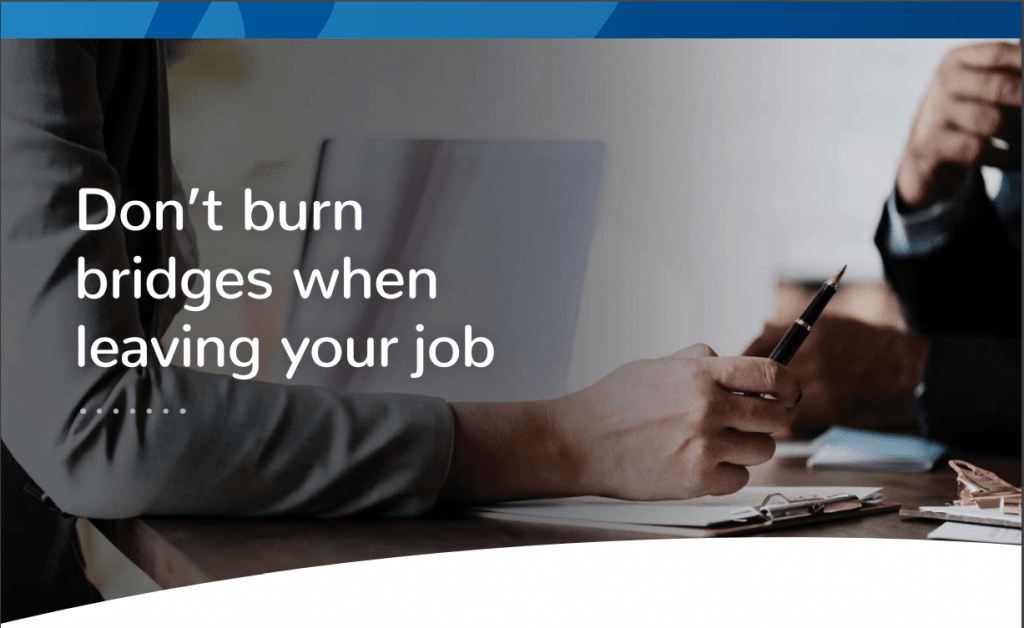Current state of the legal job market

After 21 years in legal recruitment, I thought I knew a thing or two about the market. After all I had lived through the 2001 Recession and the Global Financial Crisis. I predicted when Covid hit that there would be mass lay-offs and very few job requirements and a deluge of quality candidates struggling to find work. Well after a large serving of humble pie,I admit I was absolutely off-target. The initial uncertainty and fear when the pandemic struck in Jan-March 2020 – which according to a recent Jobadder report led to a drastic 41.6% drop in the number of placements across industries by agencies. This was the biggest drop in demand I have witnessed. However, the recovery was just as rapid with a rise in business confidence and a realisation that Australia was in a relatively good position compared to countries like the US, UK, India or Brazil. Perhaps as a result of early actions by governments, perhaps by civic duty of most citizens complying with health advice and perhaps sheer luck that we are an island- whatever the reason the catastrophic fatalities overseas were largely avoided here. Meanwhile business went on and needed lawyers to do the work. JobKeeper meant that mass lay-offs in industries like the law were avoided. There were some redundancies in April-June quarter but anecdotally some law firms have suggested it was an opportunity to let some B players go. With the rapid bounce came strong demand for lawyers and a scarce supply at the right levels. There is a large number of law graduates but very few quality lawyers on the market at the2 year post-qualification experience level. There are some movements of teams with firms merging or even ceasing operations, but the market is definitely candidate-short. Even though lawyers represent only a small percentage of the workforce, 10 of the top 20 Hardest Jobs to Fill were for lawyers (Seek report) Many lawyers are risk-averse by nature and the idea of changing jobs in an uncertain economic climate has reduced the natural churn in the market. There has also been a dramatic rise of counter-offers. Busy employers who do not have time to recruit are throwing cash at disgruntled employees to stay put. Inevitably the financial incentive only last 6-12 months before many employees end up leaving the firm anyway. Many explain that once they have said they were going elsewhere, they were treated differently. There are few surprises in the areas of demand. NSW has experienced a rapid property boom, so property and banking and finance lawyers have been in demand with a 235%and 223% respectives increase in jobs from Oct-Dec 2020 to Jan-March 2021. There were also large increases in corporate and M&A work (187%), regulatory(450%), litigation(143%). Covid lockdowns are also partly responsible for the increase in demand for family lawyers- rising 400% in one quarter. There was slightly less demand last quarter in financial services, insurance and inhouse roles. The greatest increase in level was for Division heads, junior and intermediate associates, while there was a decline in partner and graduate roles. One refreshing change has been the openness to flexibility. While law firms were gradually moving this way, the pandemic was a major catalyst. Firms glued to the idea of lawyers having to be in the office to be productive have realised that many professionals are actually more productive at home and work longer hours without having to commute. This has opened up opportunities for many lawyers who also juggle family responsibilities. Firms who want to return to full-time in the office post-pandemic, may struggle to attract many lawyers who have embraced flexibility and a number who have even relocated outside of metropolitan centres. Progressive firms have seen this as an opportunity to reduce their rent and downsize premises which are now only partly occupied. Some are evaluating suburban regional hubs rather than only a CBD presence with higher rents. There is also less need for marble foyers, glamorous board rooms adorned with fancy Artworks and harbour views if your clients are now on Zoom. In the war for talent, firms will be competing. A few tips to help firms have the edge over their competitors: Don’t rely on generalist job boards like SEEK or Indeed If you see a good CV, call the candidate that day and get them in ASAP If you must have more than 1 interview don’t spread them too far apart, it just leaves the opportunity for another firm to compete. When you interview, while assessing applicants, also sell your opportunity- point out your EVP- employee value proposition. Be fair, pay market and don’t lowball candidates (read the ALPMA survey for market rates). You will get more from employees who feel valued and will tend to stay longer. The market is definitely bullish and short of some major third wave or unforeseen economic curve ball, FY22 will be a good year for the legal profession with strong growth and demand for lawyers. Then again, my crystal ball last year was faulty. Jason Elias, CEO Elias Recruitment
Uncertain times- don’t worry, we are in your corner

Sometimes you need to talk to someone about your career. It is dangerous to speak to colleagues at work so an objective outsider with industry experience is a good option. Here is where an experienced consultant can help. Elias Recruitment has over 20 years helping legal professionals in private practice and in-house legal roles. Our award winning team, are a safe pair of hands to advise on everything from salaries and your current role or any future move. We can offer expert advice and insight into which opportunities will best suit your career ambitions. We have consultants in Sydney, Melbourne, Brisbane and Perth to assist you. So if you want a friendly, objective voice on your team, book a free career chat with one of our team at [email protected].
How to position yourself for approaches – Headhunting…

A few touches to your mobile phone and your groceries, an Uber or a pizza come to you. So why not a job? Many of the best jobs are never advertised so how do you hear about them? Good employers know that the best lawyers are so busy running their practices that they don’t have time to trawl through job ads. They also like keeping strategic hires out of the public eye so the marketplace doesn’t catch on to what they’re doing and where they’re headed. That’s why, when it comes to bringing in the big guns, they’ll use third party headhunters to track down, sound out and snare the best talent for themselves. Headhunters don’t use a scattergun approach. Once they’ve been briefed, they usually put feelers out via networks, compile a longlist, then research those candidates to see who’s likely to be a good fit. By the time they approach someone, they pretty much know who they are, what they do and what their reputation is like. So, if you want to be in their sights, there are six things you should be doing. Social networks – make LinkedIn work for you Review your LinkedIn profile, make sure it clearly articulates your skills, experience and area of practice. Highlight projects you’ve worked on and the value you contributed (without of course breaching client confidentiality). Headhunters want to have a good understanding that you’ve worked on similar kinds of matters to those their client has briefed them about. Don’t be shy about blowing your own horn. See Getting your social media profiles ready (Above). Be known as an industry expert You’ll never be headhunted if no one has ever heard of you. So, if you’re not already building a profile for yourself, start now. Put yourself forward to present on your areas of expertise wherever possible, especially for industry events or CPD. As an example, check out Bulletpoints for content. Write about important issues and hot topics affecting your work and share these – not just via your firm’s newsletters but directly with contacts by publishing LinkedIn and other social media channels. To ramp things up, join LinkedIn groups of like-minded people such as Australian Legal Community and start contributing to the conversations. Consider publishing in industry journals – or better still, form relationships with journalists to expand opportunities of being quoted in business or mainstream press as an expert in your field. Releasing subtle signals If you are considering making a move, it’s a good idea to start putting your feelers out there. You can even change your LinkedIn settings to discreetly show that you are open to new opportunities (not viewable to your employer). Also check that your Inmail settings allow you to notify users that you are open to ‘career opportunities’. Make contacting you easy, not a mystery While gatekeeping receptionists can be great at shielding you from telemarketing calls, they can act as a block for headhunters who want to sound you out. So make yourself easy to contact by including your mobile number and personal email address on your LinkedIn profile. If a headhunter struggles to reach you, they may bypass you and run the opportunity by the next person on their list. And, if a headhunter calls and you can’t speak freely, set a time to chat when you’re out of the office. This also gives you a chance to check out their LinkedIn profile to see whether you want to deal with them. Remain professional, don’t breach etiquette Don’t tell anyone in your firm – and that means anyone – about your plans to move, even once you’ve been approached. If the headhunting process isn’t handled discreetly, you’re likely to jeopardise your current position as well as any new opportunities. If a headhunter alerts you to an opportunity never approach the employer directly. Not only will your overtures be met with blank stares, you’ll be seen as disloyal. They’re using a headhunter for a reason and it may be a confidential search. But don’t be afraid If you are approached by a headhunter, you can benefit from their expertise. It never hurts to know the state of the market and have a trusted source of intelligence, especially around salary review time. Besides, even if the specific opportunity they wanted to talk about isn’t right for you at the time, something may hit their desk in the near future. Finally, if you’ve noticed that they’ve looked at your LinkedIn profile, drop them a line to find out why. Headhunting can be a slow dance of missed calls, profile views and unnoticed messages sitting in your personal email account. So, if you’re open to a move, make sure you stay alert and responsive to any headhunter approach. For additional career advice contact Jason Elias on [email protected]
Four Easy Ways To Pimp Your CV

A study by US job board The Ladders found that you have 6 seconds to make an impact or you land in the “Reject” pile. Recruiters (whether agency or internal) tend to zone in on: Name Current title and employer How long you have been at your current workplace and if you are still there Previous positions especially names of firms and longevity Admission date / Post qualification experience Education – especially for graduates. Make sure that your CV lets a recruiter access this information readily to increase your chance of scoring an interview. Avoid fancy fonts, logos, photos, text boxes and unnecessary distractions. Tailor your CV to reflect the specified criteria. Note relevant skills or experience and focus on demonstrating achievements in your recent position that match the role requirements. Here are 4 easy wins to improve your CV: 1. Employment History- List your work history in reverse chronological order and clearly state if you are still working. I suggest something simple as follows: Dec 2014- Current x Law Firm, Melbourne CBD Senior Associate Duties included (say 5-10 bullet points that are relevant to the position you are applying to) Achievements (say 3-5 bullet points that highlight why you deserve an interview) 2. Keep it professional – Even if you look like George Clooney or Scarlett Johansson – a photo on a legal CV is never appropriate. Keep language formal and use the first person. Ask someone to read over it before sending out – it’s amazing how others can find typos that you may have missed. Don’t be afraid to let some of your personality shine eg list your hobbies and interests. 3. Make it relevant – Can your CV be read in 2 minutes or less? Would a total stranger understand what value you brought to each role, your strengths and your achievements? In terms of length, aim for 2 pages for a junior lawyer and up to 4 pages for a more senior lawyer. Provide more detail on more recent roles, if you have 10 years PQE we don’t need much about your pre-legal work at Bunnings. Mention it of course but prioritise the more relevant recent legal positions. If you have achieved in areas eg sport, music, public speaking, academia- make sure you highlight these. 4. Explain any absences or short stints and don’t embellish – Red flags pop up for unexplained gaps or lots of roles in a short period. There may be valid explanations eg contract roles, firm mergers, following a partner on a lateral move, caring for family members. You are better to explain these on your CV rather than allowing employers to arrive at their own conclusions and prematurely rule you out. Whatever you do, do not lie. Not only does it damage your credibility with your prospective employer, it may affect your overall reputation with future employers. Jason Elias is Director of Elias Recruitment. Winner of 2020 Recruitment Leader of the Year Award and former lawyer from Baker McKenzie.
Seven Surprising Trends During Covid

Tenders Lawyers Weekly recently reported instead of a decrease in projects due to the pandemic, it appears there is an increase in tender and bidding activity. Coronavirus is forcing a more tech-focused approach which is good news for law firms that were innovative in tech in the pre-pandemic world. Flexibility Whilst there was already a shift towards more flexible workplace environments, Coronavirus has fast-tracked that for many law firms. Working from home will evolve to be the new normal, opening opportunities for lawyers to work nationally and will also be a welcoming relief to many parents and part-time lawyers. In a recent survey conducted by Elias Recruitment, 78% of respondents said they were equally as or more productive working from home than being in the office. Technology Firms have quickly introduced new technology and systems to make collaboration and remote working efficient and secure. Many see that agile and well-managed law firms who invest in game-changing technologies will thrive and be better able to service clients in the post-pandemic legal market. Staff Retention Many law firms have retained work and have not been required to cut down hours or their number of employees – notably Baker McKenzie. Practice areas such as litigation, employment law and family law have seen the least impact due to the pandemic. Disruption Disruption is here – Lawyers Weekly reported a Practice Evolve survey that found 52% of firms believe disruption and end-to-end business change is the number one prediction for the legal profession going forward. Loyalty Firms have realised the importance of their employees. Gadens has announced that they will be paying back the money they originally deducted from staff costs to their employees, as the financial implications were not as severe as first predicted. Salaries Elias Recruitment’s Legal Market Survey, conducted at the beginning of August, has found that 68% of the respondents had no change to their salary. For additional career advice, contact Jason Elias on [email protected]
The Dream Job. Are you ready if it knocks on your door?

You are happy in your job. But let’s face it. It’s a job. A means to an end. But what if your dream job was right around the corner. What if an employer was proactively seeking their next superstar and that star was YOU? Would you be ready? Here are some ideas on how to prepare yourself, fine-tune your personal brand and be job ready when your dream position comes knocking: 1. First things first – your CV. If you’re content in your current position (or even if you’re not), it’s likely you haven’t touched your resume in a while. But it’s time to blow the dust off and spruce it up. The resume is often your key chance to get your foot in the door. What does it say about you? Is it current? Are your most up-to-date volunteer and projects represented? What about ongoing education, presentations or additional training? Take some time with this one. Ensure the resume reflects you and your experience accurately. 2. Social media can make or break you. Gone are the days of separating your social and professional world. Employers are actively reviewing social media tools their candidates are using. A recent CareerBuilder survey stated that nearly 40% of all hiring managers are screening candidates based on their online personas – and nearly 70% of those candidates were ruled out due to questionable personal content online. Review your social profiles and delete any inappropriate photos or language or complaints about your current job or employer. Are your accounts representing a well rounded, polished professional with strong communication skills? Now is the time to manage your virtual reputation. 3. Stay connected. Your references should be your biggest fans. You’ve probably provided their contact information over the course of your career, but when is the last time you had a conversation with them? Are they aware of your current employment situation? If it’s been awhile, it might be time to re-evaluate who you are providing as a reference. Are there more current or relevant contacts that can speak on your behalf? Update your list. Give them a call. Make sure they are ready and able discuss your background and experience. 4. Be prepared to discuss your individual or team accomplishments. It’s easy to get wrapped up in the day to day of doing your job, but when is the last time you reflected on your successes. Could you name a few if you were asked? It’s time to take stock of the individual positive contributions you’ve made in your roles. Make a list. Identify the outcomes. Have you led successful teams? The same is true of this scenario. Can you speak to successful team outcomes? Be prepared to do so. Future employers want to know that you’ve demonstrated successes throughout your career. 5. Strengths vs. Weaknesses (or Opportunities for Improvement). Everyone’s got them. Not unlike identifying accomplishments, being asked to articulate strengths and weaknesses is common in the interview process. Yet many interviewees have a difficult time pinpointing these areas. Be prepared to discuss them. In addition, have examples ready. Interviewers want proof. Can you validate these areas? How have you utilised your strengths or overcome your weaknesses? How do you, in fact, know these are true areas to highlight? While it’s not easy to expose some of these vulnerabilities, most employers value this level of transparency and self-awareness. 6. Continuous Improvement. It’s not just a cliché. What are you doing to ‘improve’ yourself, meaning, what is your professional development plan? How are you expanding your skillsets? Too many candidates rely on their employers to provide and resource their professional growth. For many organisations, this simply isn’t a focus. Or they are cutting or shrinking these budgets. It’s time to recognise that gone are the days of employer-funded or directed growth and development. Be intentional. Own your career path and growth plan. You are in charge of your development, not your employer. 7. Be proactive.You probably have a job description. Do you follow it closely? Do you draw a hardline on tasks outside of your job? Or are you open to expand your skills outside of your defined role? An individual who is willing to take on additional responsibilities becomes a more desirable candidate every time. Not only does this approach highlight someone who is a team player, it also illustrates someone who is proactive, seeking to better themselves and their organisation. 8. When opportunity knocks, open the door. You may have few chances in your life to change your trajectory. Don’t miss them. For additional career advice, contact Jason Elias on [email protected].
7 Time Management Tips For Lawyers

How do you effectively manage your time? Is there a perfect method? Your job is demanding with long hours being regularly the norm, linked to demands from clients, partners and associates alike. In order to keep up with a seeming never ending demand – time management is imperative. Prioritise your time In an ever changing market like Legal, many factors can disrupt the norm and you need to be adaptable to change in their schedule. Is your list of tasks to do today realistic? Is there room if a new case takes priority? Give more attention to billable work and allocate certain hours for administrative work. Whilst both are very important, Tips for Lawyers recommends setting times or blocks of time to do both will assist with your time management and ensure you don’t fall behind or get distracted and have time if something more urgent pops up. Keep a portion of your day flexible Having a set list of tasks to get through is a great way to start the day, however what happens when other tasks (previously unseen) pop up and you are not able to finish all those tasks. If your other tasks are on timers (billable or non-billable work), there will be spots in your day and schedule in which you can slot other personal or business tasks within. Life happens and you cannot plan for all of it, you can just be prepared. Keep energy levels optimal You cannot give 100% to every person and case if you are exhausted. It’s important to be on top of how you spend your day, what you tend to prioritise, when you start to procrastinate by looking at your day plan or looking over the past week. “Resilience is not innate, but a learnt competence” How to prevent burnout in the Legal Profession. What time works best for you to be the best version of yourself? You can’t burn the candle at both ends and expect the best results. Turn off social media A lot of us use social media (LinkedIn, Twitter, Facebook… etc.) for business related purposes as well as personal. However, it can become a huge distraction in your everyday life. Do you have set tasks that you need to get through? How to stay focused on your creative tasks – and off social media suggests that putting a timer on your browser when you do decide to allocate time to social media such as twitter and facebook so you do not exceed this and engage in time wasting techniques. Try not to task switch and stick to what you have to do first. Take breaks You are not a machine. Even though you are sitting down for 8 hours with no breaks does not mean you will get more qualitative work done than someone who has 3 small breaks within those 8 hours. It is very important for our health and mindset to ensure that your head is at its peak performance. One of the best breaks would be a coffee amongst peers finds The Well Being Thesis as it allows you to relate your experience and shows a positive association afterwards. Are you engaging in time wasting activities? Set a task and stick to it. Very few people enjoy being micromanaged and therefore if you say you are going to be available at a certain time or call someone on a particular day, hold yourself accountable! Try not to procrastinate or task switch. Psychology today found that even if you spend 1/10th of a second switching tasks that amounts to a loss of up to 40% productivity, especially if you are trying to tackle a large amount of tasks simultaneously. Be open to new ideas and change Some people can be really productive when they work from home. Others cannot. Whilst staying home does make it easier to take breaks away from what may be perceived as prying eyes, what percentage of your time are you spending productive? Conversely Marylène Gagné Ph.D. from Psychology Today states that over two thirds of the employees they surveyed maintained that they had retained the same sense of productivity if not more by not having to commute to and from work. Was this helpful?
Don’t burn your bridges

So you’ve decided it’s time to move on and have secured a great new offer. Here are a few handy tips to ensure you leave your job on good terms. Stay engaged Don’t check out too early. As long as you are being paid you owe it to your firm and your clients to do your best until you walk out the door. Organise a plan to transfer your responsibilities so your partner/ manager and colleagues are not left with a mountain of unfinished work. Make sure there are no ‘time bombs’ sitting in your files that will adversely affect your colleagues down the track. Write a resignation letter Think of your resignation letter as a thank you note. It’s an opportunity to express your gratitude to your manager for working at the company and for the help they may have provided. It should also include your last day on the job. Where possible, resign in person to provide closure. Make sure you resign with adequate notice, particularly if your job is complex. If you would like some guidance, here is a template for a resignation letter from Seek. Remember the legal world is very small. Get your story straight Once you’ve met with your partner/ manager, ensure you’re both on the same page regarding the reasons for your departure. It’s vital to keep your approach positive – you want to leave the door open for future employment or at least a good job reference. Confirm with your manager how he or she would like your colleagues to be told. It may be worth suggesting that you tell colleagues individually and write a short email for your partner/manager to distribute. Return any property Make sure you don’t leave with any keys, equipment or furniture (I know you loved that office iPhone). Leave with a good conscience and make sure to pass on your contact details to colleagues. If there is an alumni organisation make sure you sign up and if there is an exit interview – try and provide positive feedback and constructive criticisms. Try and refrain from ‘going postal’ irrespective of the reasons you are leaving. Remember you are likely to bump into former colleagues at other firms, in court or they may even be your next client. It is a small industry and people have long memories. Try and move on without burning bridges. Be VERY wary of counter-offers Once you have signalled your intention to leave your potential employer, even if you accept a counter-offer to stay things will never be the same. Anecdotally, most people who accept a counteroffer still leave their employer within the next 12 months. The fundamental reasons that they were looking to change employers has not changed.
How to negotiate your legal salary

Much like interviews, successful salary negotiation happens BEFORE any conversation. Being well prepared will make you a lot more successful. 1- Know industry ranges so that you know what is realistic for any given role. Glassdoor, while not legally specific, may have some useful information of actual salaries. 2- Always remember that it is a collaboration – not a fight. 3- Speak with your recruiter about what is realistic. 4- Hold off on discussing money until they’ve made a decision to hire you. Potential employers will always be looking to lock you down to a specific range early, and you will have more leverage when they’ve decided that you are the person they are most interested in. 5- Quantify your value – know the specifics around your billable hours, charge rates, along with major new clients that you might have won, or initiatives that might have saved your firm significant amounts. 6- Scarcity and competition are your friend – make it clear that you are in demand and have some other opportunities. This helps the company bring their best offer to the table. 7- Negotiate outside of just salary – many companies might have some limitations around salary banding, but might be able to help with additional working hour flexibility, training allowances, position title, travel allowances, education allowances, additional annual leave, etc. 8- Work with your recruiter – a good recruiter as an intermediary can really help you succeed here. They’re able to have more difficult conversations tactfully on your behalf. It makes things cleaner having an independent third party but obviously they are keen to get the deal done. 9- Don’t haggle for the sake of it. I have seen too many people miss out on dream jobs for trivial amounts of a few dollars a day, particularly taking out tax and superannuation.
Deciding on which legal job to accept

Now that you have some more information about the job, the organisation and the people, you are in a strong position to reflect on whether this opportunity is a good match for you. The next step is to ask yourself some questions to see how closely the role aligns to your strengths, interests and personal values. Do the day-to-day tasks sound like something I could do and enjoy? Is there enough challenge in the daily role to keep me interested? Could I contribute something and learn new skills in this role? Does the work environment sound like it will suit my style? Does the organisation value the same things that I do? Have I enjoyed interacting with the people I met at interview? Does the team sound well-structured and cohesive? Could I learn something from my team members or manager? Asking yourself these questions is especially useful if you are trying to decide between a couple of different opportunities, as it will give you a point of comparison. And remember – as wonderful as it is to receive a job offer, this is your career and you have something valuable to offer, so ask questions and think carefully so that you can choose wisely. Often a recruitment agent can provide useful feedback on what it is like to work in each environment. Obviously some will have a vested interest if there are offers that are not from them, which is why it is good to stick with one recruiter.